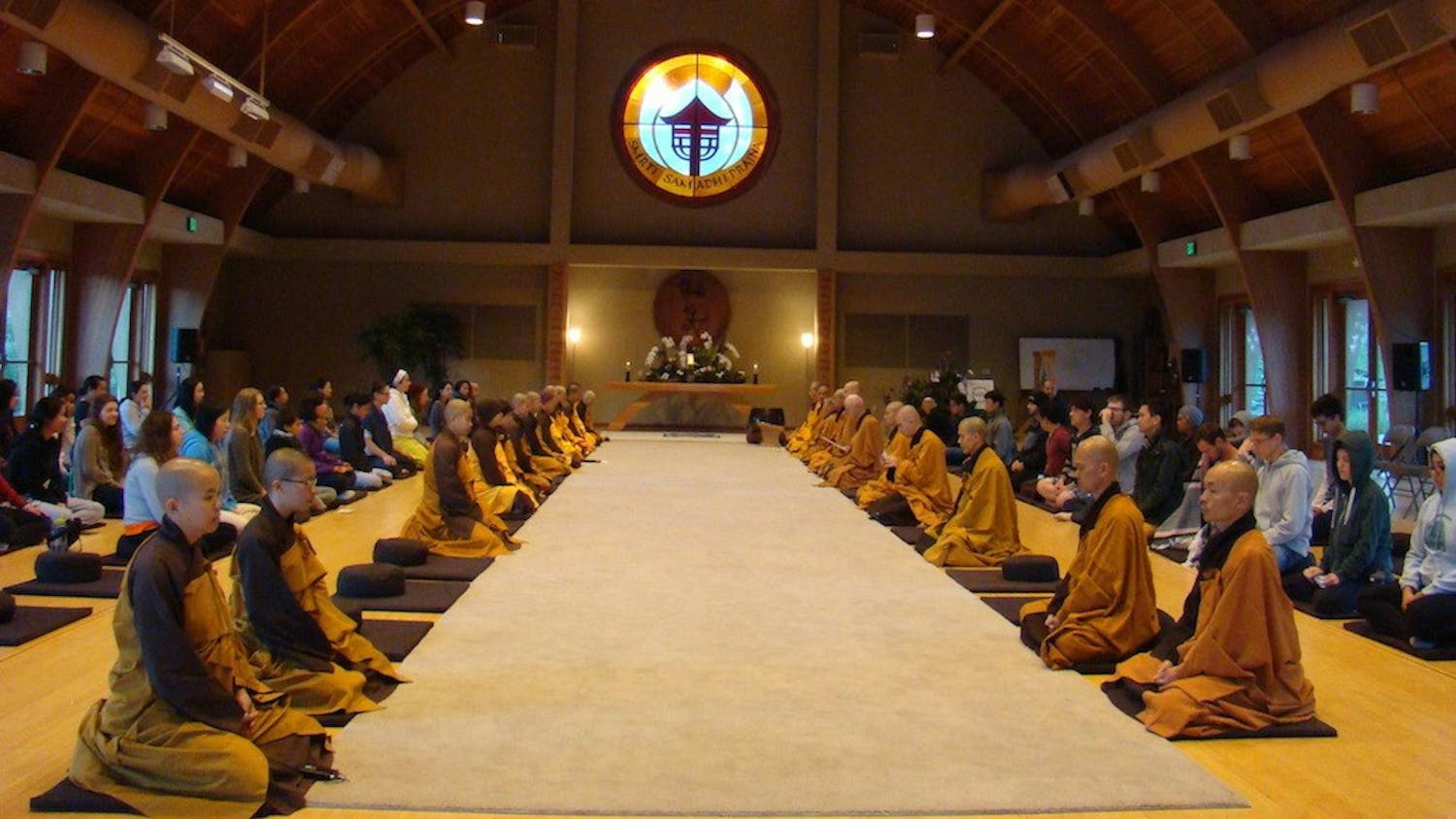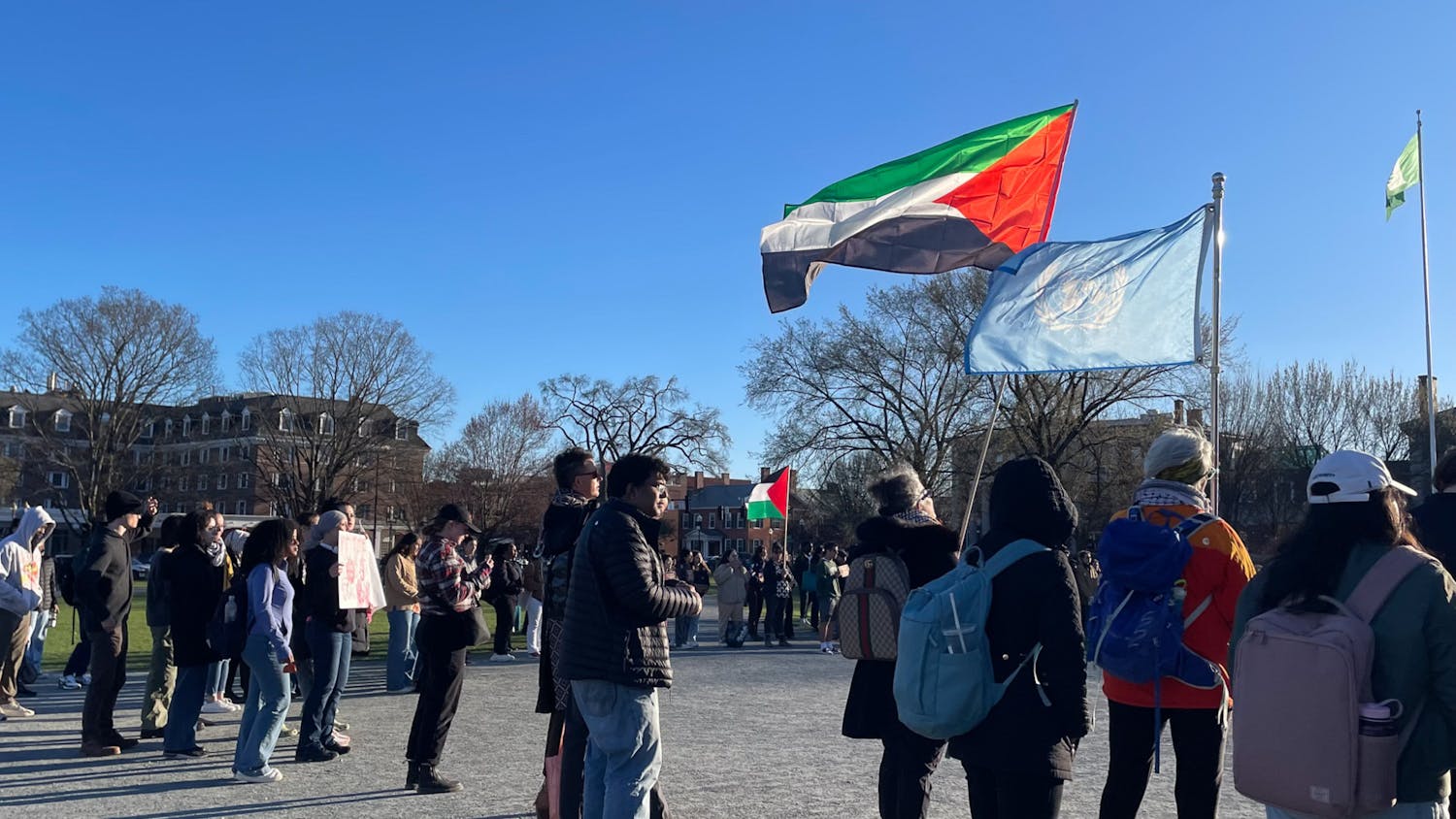Ramtin Rahmani ’16 said he keeps thinking back to one anecdote submitted as part of the #DartmouthIamHere campaign — a new project using student submissions to showcase socioeconomic diversity on campus — where the student wrote about how at the end of each College tour he gives, he mentions that he is the first person from his family to attend college. This act, Ramtin noted, is this student’s way of expressing that there is diversity on campus.
This project, which Rahmani helped organize through his role as co-director of Dartmouth Quest Scholars, was spearheaded by Hui Cheng ’16 and Quest Scholars co-director Emily Chan ’16. The organizers, who were inspired by similar projects on other campuses like Princeton University, hope to launch the Facebook page, “Dartmouth Class Confessions,” sometime next week, Cheng said.
Julietta Gervase ’16 and Thienan Dang '16 served as photographers and David Cordero ’16 worked as graphic designer for the project. Gervase is a former member of The Dartmouth senior staff.
Around 30 students submitted personal stories to the project, of which 15 to 20 will be publicly presented alongside a photograph of the student on the project’s Facebook page, Chan said. The project aims to increase knowledge of the experiences of those from lower socioeconomic backgrounds, noting the tangible effect of increasing campus dialogue through similar projects at other institutions such as Northwestern University.
In part because of these false character connotations associated with coming from different class background, people are reluctant to speak about these issues, Ilenna Jones ’15, who helped co-found Dartmouth Quest Scholars in 2011, said. She showed Cheng and others the Princeton page that helped inspire the project.
“It causes a tension and an awkwardness so people avoid the issue,” Jones said. “It’s like talking about religion or politics.”
She said because colleges like Dartmouth were built for the elite, there is a tension as they become more accessible to those from lower socioeconomic backgrounds.
The presidential steering committee’s final report for “Moving Dartmouth Forward” indicated that the socioeconomic distribution of students at Dartmouth is “in stark contrast to national demographic norms.” Fifty-nine percent of students come from families with incomes of $200,000 or above, while the U.S. Census records that only six percent of U.S. families earn that level of income. Comparatively, 11 percent of the student body at Dartmouth comes from the bottom 40 percent of U.S. households.
Cheng said the disproportionate level of wealth on campus can be very alienating to those from backgrounds that seem different from the norm or the perception of the norm. She noted that she felt uncomfortable speaking about class as a freshman, but became more comfortable through her socioeconomic advocacy work with OPAL and the Inter-Community Council.
She added that the submissions were all unique and that to see “the human dimension” through personal stories is different from simply looking at financial aid statistics. Common threads among the submissions were discussions of holding jobs, often multiple, while on campus and the intersectionality of class with other identities.
The project is timely, Cheng said, considering the high level of dialogue regarding class on other Ivy League campuses, citing the inaugural All-Ivy First Generation Conference hosted by Brown University this winter as an example.
She said that because Dartmouth’s Office of Pluralism and Leadership and the Tucker Foundation are both in a period of transition, there is a lack of institutional support for these kinds of projects. This, compounded with students being uncomfortable with discussing class, contribute to the dearth of conversation at the College, Cheng said.
Chan said that the oft-repeated tagline that class is a hidden minority is really crucial when thinking about why the subject is often taboo. Chan said that there is a divide along socioeconomic lines that people do not notice on campus.
“When you’re here you surround yourself with people who are similar to you, and you don’t realize that there is another side of campus,” Chan said.
She said that these divisions became clear for her and for many others on foreign study programs and language study abroad programs. What students can do and where they can go throughout the program depends on how much money they have.
Jones said based on her experiences at the College, she knows that students want to talk about issues surrounding class. She helped found the Quest Scholars program in 2011, which is the campus extensions of QuestBridge, an organization that helps high-achieving low-income students as they apply for college. In 2011, the first students who applied through the College’s partnership with QuestBridge matriculated at the College. That year, Dartmouth Quest Scholars was recognized as a student organization.
Quest Scholars is currently negotiating a name change to Dartmouth Socioeconomic Alliance in order to emphasize its openness to all students, not just those affiliated with QuestBridge, Chan said. The role of the group, she noted, is to create a safe space for dialogue around issues of class and socioeconomic status.
She noted that in discussion on the subject, people “crawl out of the woodwork” and express their excitement at finding others who want to have a discourse. She noted that discussing socioeconomic status is charged with “character evaluations.”
“If someone is successful, monetarily, in this country, then they are seen as good people who know how to take care of themselves, who make good decisions, who are people of good character,” Jones said. “If you’re poor, you’re irresponsible or your family doesn’t work hard enough, or you’re lazy and somehow also entitled.”
As someone who identifies as working-class poor, Jones noted that as a freshman she also didn’t feel comfortable discussing her socioeconomic status.
“The place is for them, not for me,” Jones said. “The silence is a product of the imbalance in distribution of socioeconomic backgrounds.”
Even if the project promotes only “fleeting reflection,” Jones said it will be beneficial to everyone by prompting students to question what it means to come from a certain socioeconomic background.
Update: May 4, 2015
This article has been updated to include that Dang is workingas a photographer for the project.



